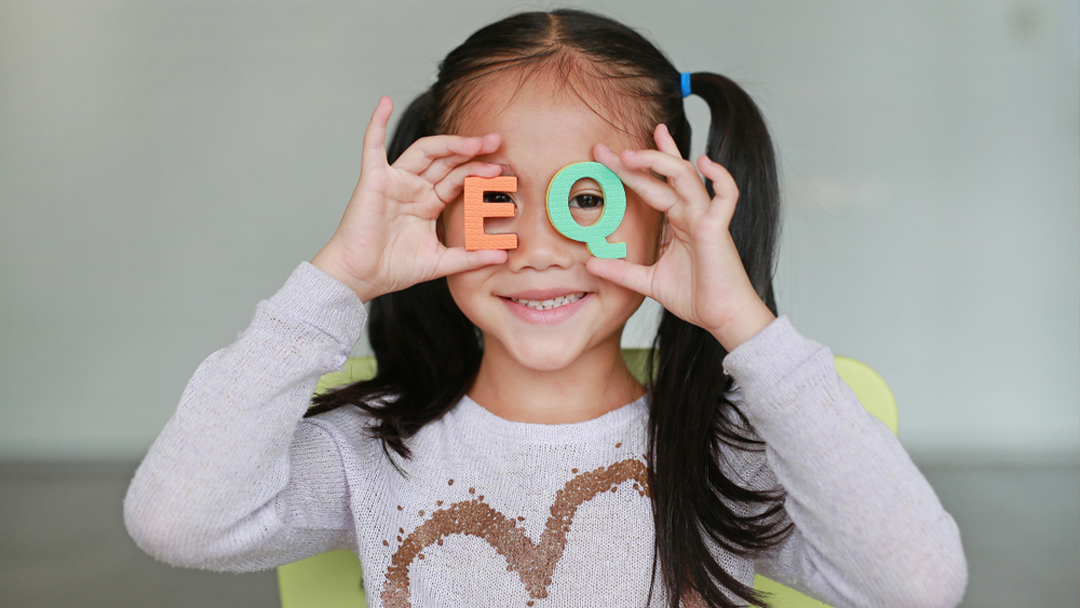Enhancing Emotional Intelligence in Your Child: Parenting Tips
To enhance your child’s emotional intelligence, focus on self-awareness, empathy, regulation, and healthy responses. Help your child recognize emotions accurately by celebrating strengths and modeling empathy. Encourage emotional regulation through techniques like deep breathing and mindfulness. Create a safe environment for emotional growth by fostering trust and open communication. Provide tools for conflict resolution by teaching clear expression of feelings and active listening. By prioritizing emotional development, you equip your child with essential skills for well-being and success.
Key Takeaways
- Model empathy and compassion in daily interactions.
- Practice emotional regulation techniques together.
- Encourage self-awareness through reflection and discussion.
- Identify and celebrate your child’s unique strengths.
- Create a safe and nurturing environment for emotional growth.
Importance of Emotional Intelligence

Understanding the significance of emotional intelligence in children can greatly impact their overall well-being and success in various aspects of life. Developing EQ skills from a young age provides numerous benefits that can positively shape your child’s future.
Children with strong emotional intelligence are better equipped to navigate relationships, handle stress, and communicate effectively. Research shows that kids with higher emotional intelligence tend to have better mental health outcomes, improved academic performance, and enhanced social skills.
Building Self-Awareness
Understanding and nurturing self-awareness in your child is essential for their emotional development.
By recognizing emotions accurately, they can better navigate their feelings and understand the impact of these emotions on their actions.
Encouraging reflection on behaviors and identifying personal strengths will empower them to cultivate a strong sense of self-awareness.
Recognizing Emotions Accurately
To develop your child’s emotional intelligence, begin by helping them accurately identify and label their own feelings. Emotion recognition is vital in understanding oneself and others. Encourage your child to pay attention to social cues such as facial expressions, body language, and tone of voice to better grasp the emotions present in different situations. By fostering self-reflection, you can enhance your child’s emotional awareness, enabling them to navigate their feelings effectively.
Children can practice recognizing emotions by asking themselves questions like, ‘How am I feeling right now?’ or ‘Why do I feel this way?’ Engaging in conversations about emotions and encouraging them to express how they feel can aid in this process.
Additionally, reading books or watching movies together and discussing the characters’ emotions can help your child develop a deeper understanding of various feelings.
Understanding Personal Strengths
How can you help your child uncover and appreciate their unique talents and abilities? Identifying strengths is an essential step in building self-awareness.
Encourage your child to explore different activities and hobbies to discover what they excel at and enjoy. Notice patterns in their behavior and reactions to different situations to pinpoint where their strengths lie.
Celebrate uniqueness by emphasizing the value of their individual talents. Praise their efforts and accomplishments in areas where they shine brightest. By focusing on their strengths, you boost their confidence and self-esteem.
Help them understand that everyone has a unique set of abilities that make them special.
Provide opportunities for your child to showcase their strengths. This could be through extracurricular activities, projects, or simply engaging in discussions about their interests.
By nurturing their talents and passions, you help them develop a strong sense of self and a positive self-image.
Reflecting on Behaviors
Encourage your child to reflect on their behaviors as a way to build self-awareness and emotional intelligence. Behavior analysis involves looking at actions, reactions, and consequences in various situations. By engaging in self-reflection, your child can gain insight into why they behave in certain ways and how their actions impact others.
Create a safe and open environment where your child feels comfortable discussing their behaviors. Encourage them to think about why they acted a certain way, how it made them feel, and the reactions it elicited from others. Help them understand that reflecting on their behaviors isn’t about judgment but about learning and growth.
Teach your child to identify patterns in their behavior by keeping a journal or using a behavior tracking tool. By recognizing these patterns, they can work on modifying behaviors that may not be serving them well. Through regular self-reflection, your child can develop a deeper understanding of themselves and enhance their emotional intelligence.
Teaching Empathy and Compassion
Teaching empathy and compassion is essential in nurturing your child’s emotional intelligence. By modeling empathy, you show them how to understand and share the feelings of others.
Encouraging compassion helps them develop caring relationships and become more considerate individuals.

Empathy Through Modeling
By demonstrating empathy and compassion in your daily interactions, you’re laying a strong foundation for your child to learn these essential emotional skills.
Role playing scenarios can be a powerful tool to help your child understand different perspectives and emotions. Through these scenarios, your child can learn to recognize and respond to the feelings of others, enhancing their empathy.
Incorporating emotional check-ins into your routine allows your child to express their emotions freely and feel understood. These moments of connection foster empathy as your child learns to recognize and validate their own feelings and those of others.
Empathy exercises, such as discussing hypothetical situations that evoke various emotions, can help your child develop a deeper understanding of empathy.
Active listening techniques, like maintaining eye contact and repeating back what your child has expressed, show them that their feelings are valued and understood.
Compassion for Others
Fostering a sense of empathy and compassion in your child involves actively engaging in conversations that highlight the importance of understanding and caring for others‘ emotions and experiences. To cultivate empathy, try empathy exercises such as asking your child how they think a friend feels in a certain situation or discussing characters’ emotions in stories.
Engage in kindness activities like volunteering together or encouraging your child to perform small acts of kindness daily, such as sharing toys or offering a hug to a sad friend. Research shows that practicing empathy and compassion not only benefits others but also enhances your child’s emotional intelligence and social skills.
Building Caring Relationships
To nurture empathy and compassion in your child, encourage open discussions about others’ emotions and experiences, fostering strong and caring relationships. Developing empathy starts with teaching your child to actively listen and acknowledge the feelings of others. Encourage them to contemplate how their actions impact those around them.
By modeling empathy in your interactions, you show them how to respond with kindness and understanding.
Nurturing relationships with family, friends, and the community provides opportunities for your child to practice empathy and compassion regularly. Engage in activities that promote teamwork and cooperation to help them understand the importance of supporting others.
Encouraging acts of kindness, such as volunteering or helping a friend in need, reinforces the value of compassion.
Encouraging Emotional Expression

Help your child understand that expressing their emotions is healthy and normal, fostering an environment where they feel safe to share how they feel. Encouraging emotional expression not only allows your child to process their feelings but also promotes creativity and self-discovery. By expressing emotions, children can explore the vast range of feelings they experience, leading to a better understanding of themselves and others.
Provide a variety of outlets for emotional expression, such as art, music, or journaling, to help your child find what works best for them. Engaging in creative activities can be a powerful way for children to express complex emotions that they may find challenging to articulate verbally. Encourage your child to experiment with different forms of expression to discover what resonates most with them.
Practicing Emotional Regulation
Practice emotional regulation by teaching your child techniques to manage their feelings effectively in various situations. Self-regulation techniques such as deep breathing, mindfulness, or taking a break can help them maintain emotional balance when faced with challenging circumstances.
Encourage your child to identify their emotions and express them in a healthy manner. By modeling and practicing coping strategies together, you can show them how to navigate stressors and regulate their reactions.
Teach your child the importance of recognizing when they need a break or a moment to calm down. This could involve going for a walk, listening to calming music, or engaging in a favorite hobby. By incorporating these stress management techniques into their daily routine, your child can build resilience and emotional intelligence.
Modeling Healthy Emotional Responses
Demonstrate healthy emotional responses for your child by openly expressing your own feelings and modeling effective ways to manage them in various situations. As a parent, your guidance plays an important role in shaping your child’s emotional maturity.
Setting examples of healthy reactions can greatly impact how your child learns to navigate and express their own emotions. When you encounter challenging situations, such as stress at work or disagreements with others, verbalize your emotions calmly and constructively.
By doing so, you show your child that it’s normal to feel a range of emotions and that it’s essential to address them in a healthy manner. Additionally, demonstrate problem-solving skills and coping mechanisms to manage these feelings effectively.
Furthermore, be mindful of how you react to your child’s emotions. Offer support and understanding, validating their feelings while also guiding them on how to express themselves appropriately.
Creating a Safe Environment

Consistently creating a safe and nurturing environment is essential for fostering your child’s emotional well-being and development. One significant aspect of this is creating boundaries that provide structure and security. By setting clear expectations and limits, you help your child understand what’s acceptable behavior and what’s not, promoting a sense of safety and predictability.
Fostering trust within your family is another key component. When your child feels secure in their relationships with you, they’re more likely to open up and share their thoughts and feelings. This trust forms the foundation for healthy emotional development and communication.
Promoting communication is crucial for creating a safe environment. Encourage your child to express themselves openly and honestly, and listen attentively to what they’ve to say. By validating their emotions and experiences, you show them that their feelings are valid and valued.
Ensuring safety both physically and emotionally in your home environment is essential for your child to thrive and develop a strong emotional intelligence foundation.
Providing Tools for Conflict Resolution
To equip your child with valuable skills for managing conflicts effectively, provide them with practical tools and strategies that promote peaceful resolutions. Conflict resolution strategies are essential for children to navigate disagreements in a healthy manner.
Encourage role-playing exercises where they can practice resolving conflicts with siblings or friends. By engaging in these scenarios, they can learn how to communicate effectively and develop active listening skills.
Teaching your child to express their feelings and needs clearly while also being attentive to the perspectives of others is vital for successful conflict resolution. Encourage them to use ‘I’ statements to convey their emotions without blaming others.
Additionally, help them understand the importance of active listening by teaching them to paraphrase what the other person has said to promote mutual understanding.
Frequently Asked Questions
How Can I Handle My Child’s Emotional Outbursts in Public?
When your child has emotional outbursts in public, it’s important to remain calm and address the behavior privately. Set clear boundaries and consequences, showing understanding but firmness. Dealing with embarrassment is tough, but consistency is key.
What Are Some Fun Activities to Promote Emotional Intelligence?
To promote emotional intelligence in your child, engage in art therapy and mindfulness activities. Incorporate role-playing and storytelling techniques to enhance empathy and self-awareness. These fun activities can help your child develop essential emotional skills.
Is It Normal for My Child to Have Trouble Expressing Emotions?
It’s common for children to struggle with expressing emotions as part of their emotional development. Providing parental support through active listening, validating feelings, and teaching healthy coping strategies can help them navigate and communicate their emotions effectively.
Should I Intervene in My Child’s Conflicts With Friends?
When it comes to conflict resolution in peer relationships, it’s important to teach your child healthy ways to navigate friendships. While parental intervention may be necessary at times, empowering your child to handle conflicts independently can also foster emotional intelligence.
Can Emotional Intelligence Be Improved in Teenagers Too?
Yes, emotional intelligence can be enhanced in teenagers. Teenage development is a critical period for emotional growth. Your parental support and understanding of adolescent emotions can greatly influence their emotional intelligence and overall well-being.
Conclusion
To sum up, by focusing on building your child’s emotional intelligence through self-awareness, empathy, emotional expression, regulation, and healthy responses, you’re setting them up for success in all aspects of their life.
Providing a safe environment and tools for conflict resolution will further enhance their emotional well-being.
Remember, as a parent, you play an essential role in shaping your child’s emotional intelligence, so keep practicing these tips and watch them thrive.

Hey there! 👋 I’m a proud mom and passionate writer, sharing my parenting journey. 📝 Join me as I navigate the ups and downs of motherhood, offering tips, advice, and a sprinkle of humor along the way. 🌟







